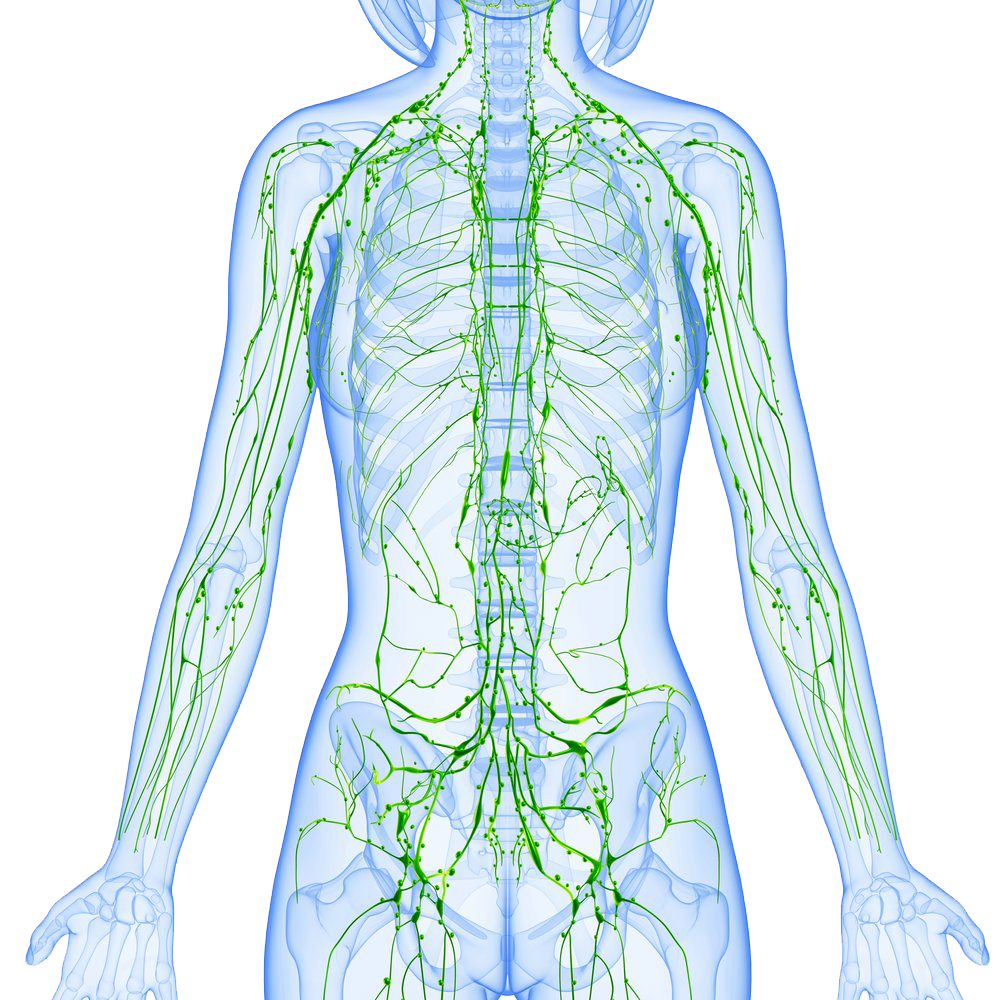
Nutrition for a healthy lymphatic system
These last few years have put the spotlight on the importance of a healthy immune system.
While we are all familiar with what it means to have a healthy immune system, most are not familiar with the role that our body’s lymphatic system has on it. So let’s introduce you to the lymphatic system and how nutrition plays a vital role to keep it in tip-top shape!
Meet your Lymphatic System!
The lymphatic system is basically our body’s drainage and filtering mechanism. So let’s focus on the “drainage” part of the system first. As our blood vessels carry blood to our extremities the vessels get smaller and smaller. This causes water, proteins, salts, and glucose to leak out of the blood vessels and into our tissues. The lymphatic system is responsible for collecting this fluid (now referred to as lymph) so that it does not accumulate and cause painful swelling. When our lymphatic system is not working correctly or has been damaged it can result in excessive and painful swelling in the extremities called lymphedema. Now, let’s shift our focus to the “filtering” aspect of the lymphatic system. Bacteria, microbes, and toxins are also collected in the lymph fluid. The lymphatic vessels carry them to lymph nodes where white blood cells attack and destroy them. So what can you do to keep it healthy?
Nutrition and the Lymphatic System
It’s not surprising that our lymphatic system, like the rest of our body, depends on a well-balanced diet rich in vitamins and minerals to keep it in peak condition. If our body is experiencing high levels of inflammation, this can put increased stress on the lymphatic system, and when working overtime, this can lead to dysfunction and impairment. To ensure that you are supporting the drainage and filtering power of the lymphatic system make sure to take in plenty of water and foods with anti-inflammatory properties and reduce your intake of foods that can increase inflammation within the body.
Green Leafy Vegetables
Includes spinach, kale, chard, arugula, collard greens, beet greens, etc
When paired with an extra virgin olive oil or full-fat salad dressing, absorption of vitamins found in leafy greens increases
Consider cooked and raw versions. Cooking vegetables makes some nutrients easier to absorb but decreases or destroys others so it is good to take in some of both
Berries
Contain multiple phytochemicals that have a strong antioxidant effect in the body
Cruciferous Vegetables
Broccoli, cabbage, cauliflower, brussels sprouts
One study has shown that eating 1.5 cups of cruciferous vegetables per day has been shown to decrease 3 inflammatory markers in the blood by 13%-25%
Omega-3s
Salmon, wild seafood, flax seed, chia seeds
Omega-3’s have been associated with decrease C-Reactive Protein which is an inflammatory marker in the blood
Nuts and seeds
Chia, flax, hemp, pumpkin
High in healthy fats, protein, nutrients, and antioxidant polyphenols
Herbs and spices (turmeric, ginger, garlic)
Turmeric, ginger, garlic, cinnamon, rosemary, green tea, black pepper, and cardamom
Not only does it add some great flavour to your food, but they can pack a big antioxidant punch!
Oils
Extra virgin olive oil
Coconut oil
Water
This probably doesn’t come as a surprise to anyone, but staying adequately hydrated is an essential part of a healthy lymphatic system. It is a main component of the lymph that helps to trap bacteria and microbes and keeps our immune cells functioning properly so they can destroy these invaders!
Foods that CAUSE Inflammation in the Body
Common allergens such as dairy, gluten, soy, shellfish, or nightshades
Low-quality animal products
Refined vegetable oils
Processed foods
Wellness and the Lymphatic System
Even though I want to stress the importance of nutrition, I can’t do the lymphatic system justice without mentioning the importance of healthy sleep, exercise, and stress management habits. Inadequate sleep and excessive stress causes increased cortisol (a stress hormone) which leads to increased inflammation in the body. The lymphatic system relies on muscle contraction to help assist in drainage of the lymph fluid so exercise is very helpful to support this process. Next time you hear someone talking about the immune system, think about the lymphatic system and all the amazing things that it does for your body!









